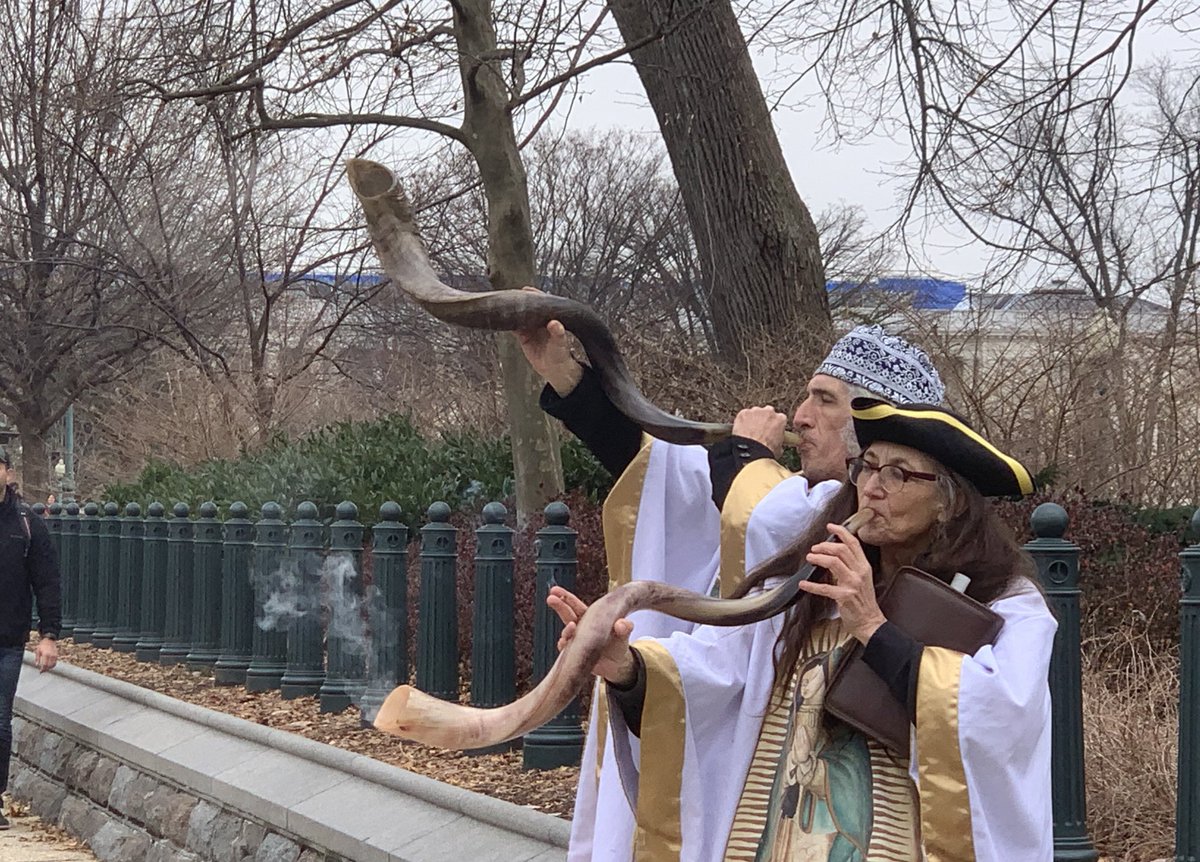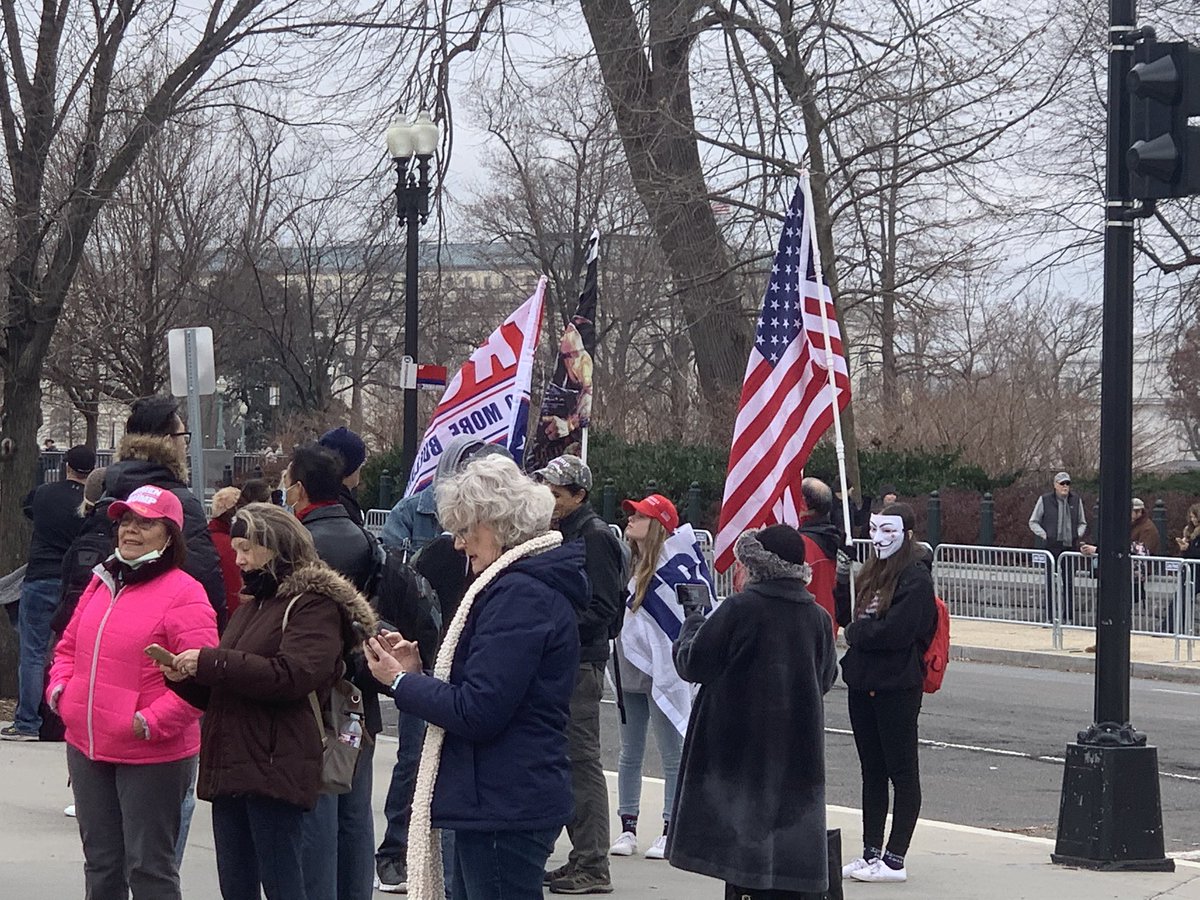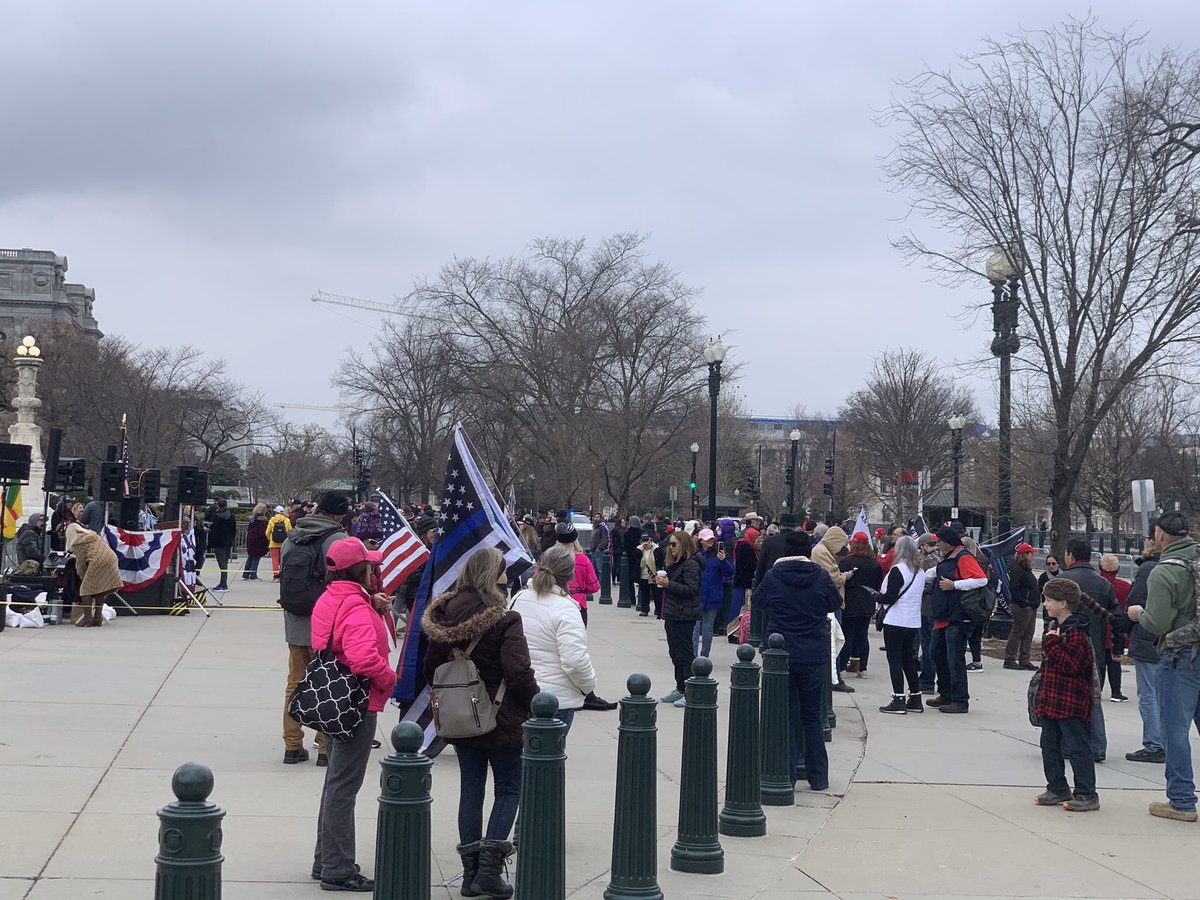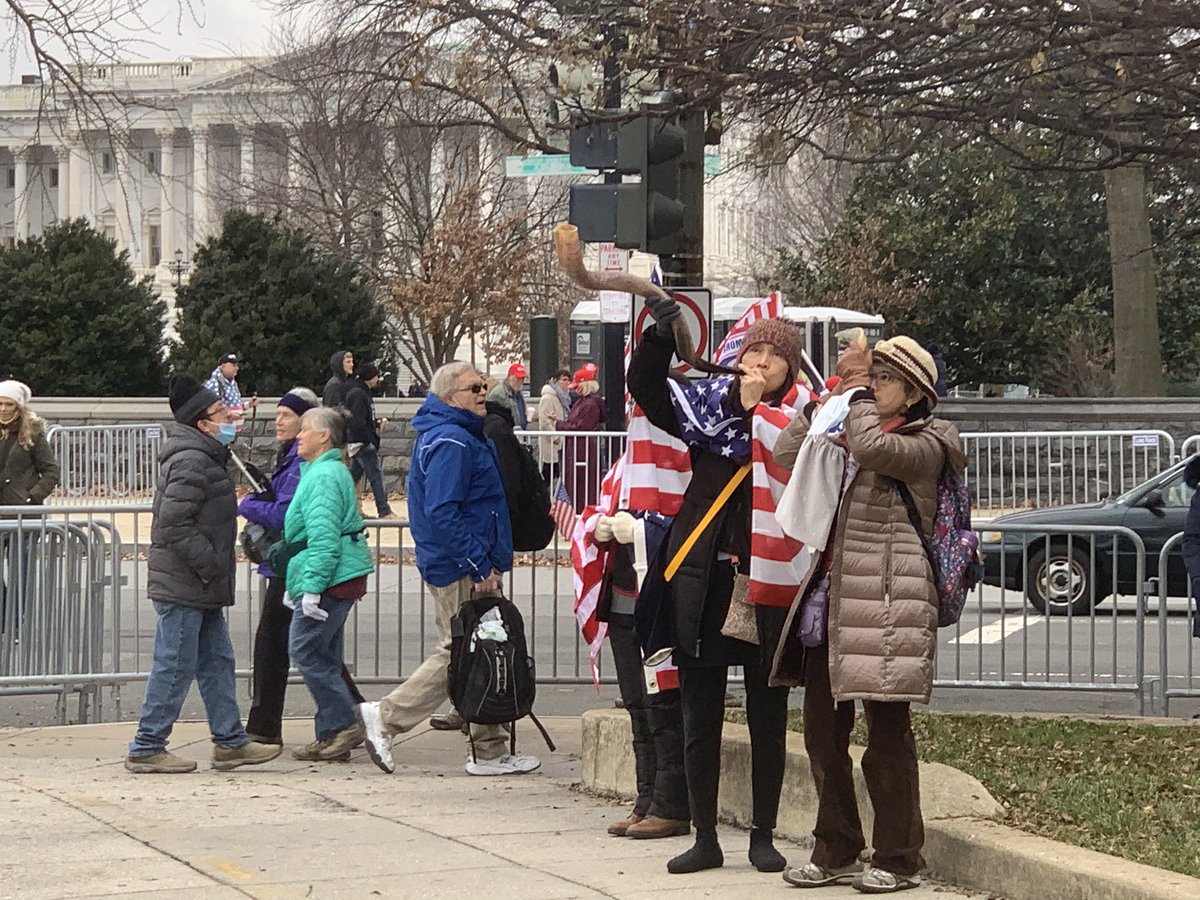So strange that Law & Crime article questioning whether the Capitol rioters could be prosecuted for felony murder and it *never discusses* the most obvious predicate felony—burglary
https://t.co/cSFJzB5fwq via @lawcrimenews
It’s the sort of error that loses students a lot of points on their final exam!
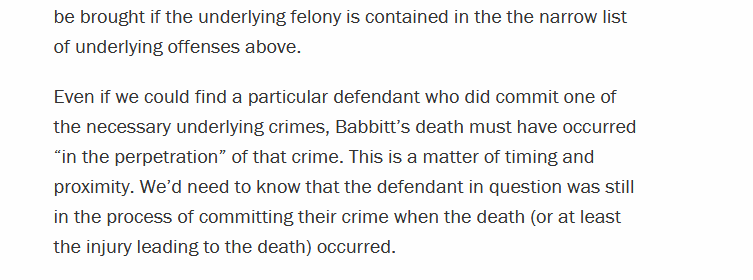
That's going to make the "remoteness" inquiry pretty easy, not complicated as the article says.
But even here, the article's got problems.
Again, this is an issue that we teach in 1st year criminal law.
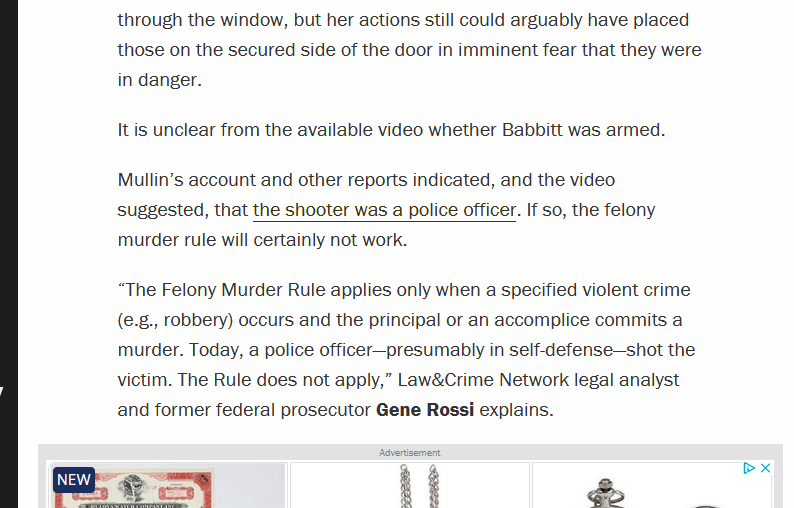
Maybe they were wrong, but this article certainly didn't make the case for it.
I'm no journalism expert, but that doesn't strike me as a helpful way to inform readers.
Why not call the people who are tweeting about things for a more thoughtful quote?
More from Legal
The 13 people murdered by Trump's death row killing spree:
— Cori Bush (@CoriBush) January 17, 2021
Daniel Lee
Wesley Purkey
Dustin Honken
Lezmond Mitchell
Keith Nelson
William LeCroy Jr.
Christopher Vialva
Orlando Hall
Brandon Bernard
Alfred Bourgeois
Lisa Montgomery
Corey Johnson
Dustin Higgs
Say their names.
You can oppose the death penalty as a punishment without pretending that the people executed were victims or that carrying out those executions is comparable to murder.
As an example: Daniel Lee was a white supremacist who murdered a family (including an 8-year-old girl) by suffocating them with bags and then dumping their bodies in a swamp.
That's whose name @CoriBush wants you to remember.
Wesley Purkey admitted to kidnapping, raping, and then murdering a 16-year-old girl named Jennifer Long. He then dismembered her body. He also beat an 80-year-old woman to death.
Maybe we should learn the names of his victims instead, @CoriBush?
Dustin Honken was a meth dealer that murdered 5 people, including 2 girls under the age of 11, because their dad was set to testify against him on drug charges. He was specifically sentenced to death for killing the 2 kids.
All six are associated with the far-right #OathKeepers militia.
THREAD 1/
Story: https://t.co/abZlcVyaR6
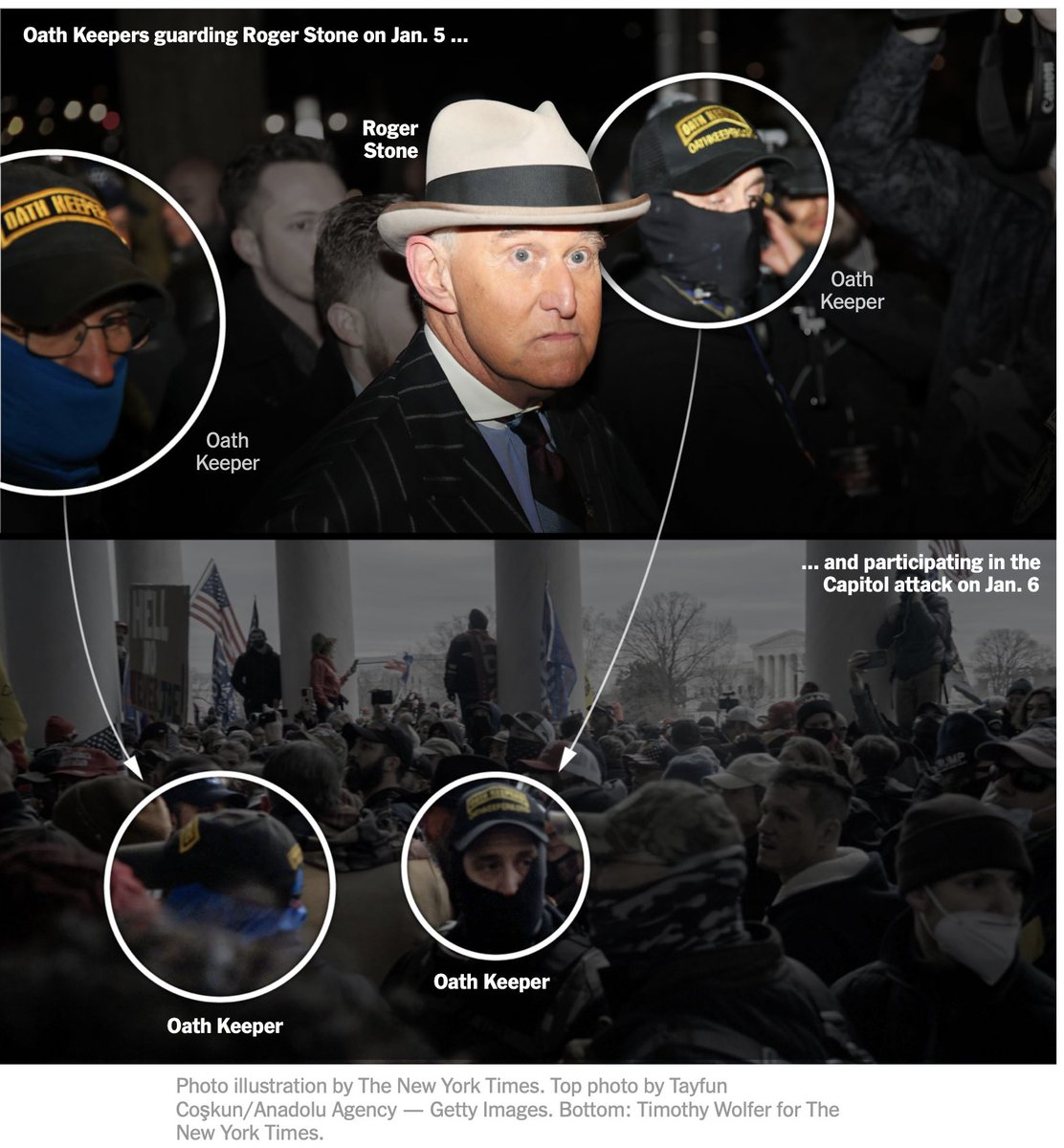
2/ On January 5th, Stone appeared at the Supreme Court, glad-handing and being driven in a go-kart. Later he attended a rally near the White House.
As the @nytimes team shows, his security entourage featured a host of #OathKeepers...
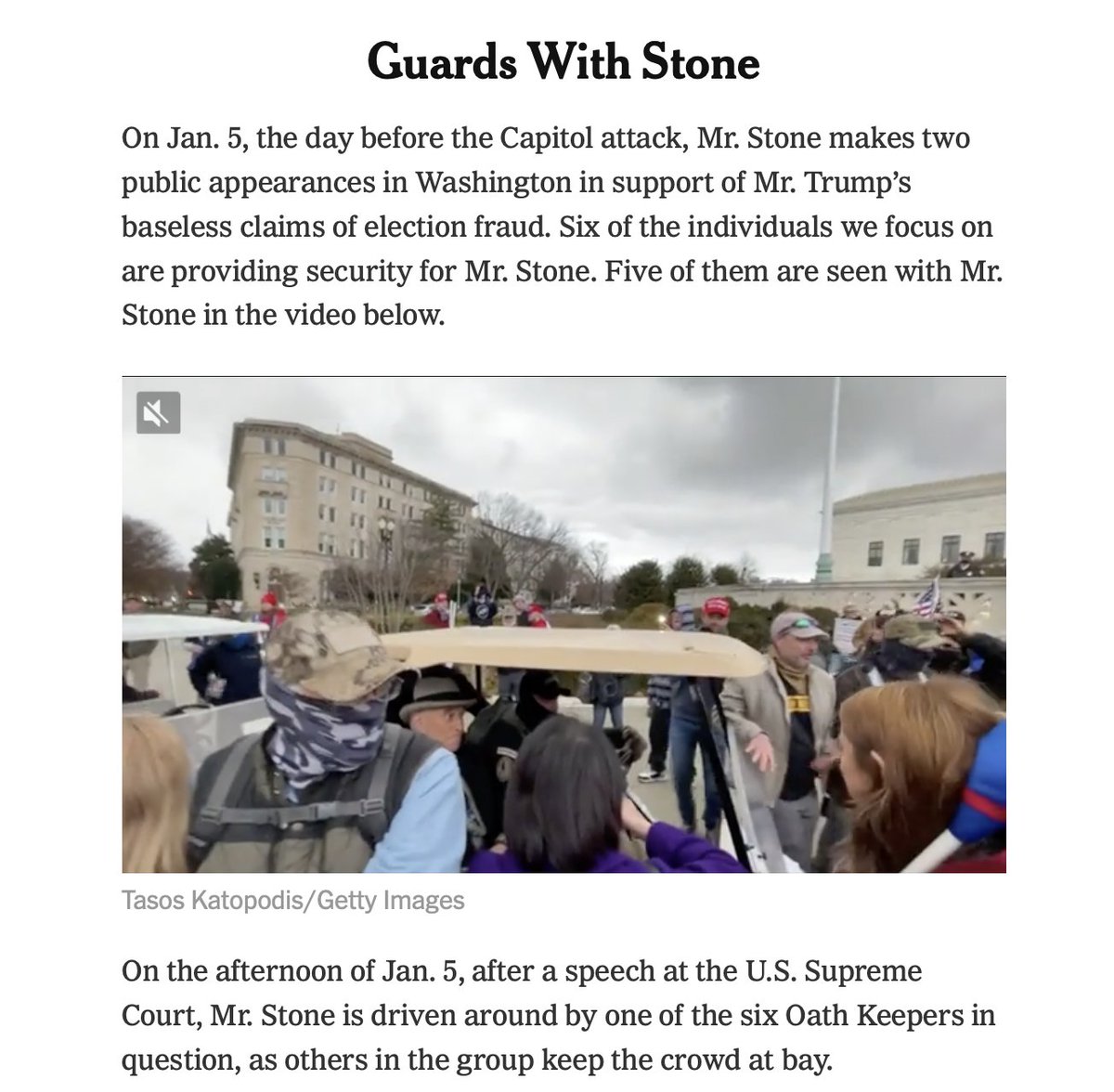
3/ In the morning of the 6th, Stone stood outside the Willard InterContinental hotel, again flanked by men associated with the #OathKeepers.
Some of them, like Rob Minuta, have been named in prior

NEW: Rob Minuta guarded Roger Stone Jan 6th...& was later seen at #Capitol siege..
— John Scott-Railton (@jsrailton) February 7, 2021
Now we know he has a history of escorting Trump allies like Flynn & Alex Jones. Also seen in December w/indicted Proud Boy #Spazzo.
THREAD
By @arawnsley
Link: https://t.co/8t38iOmgYP pic.twitter.com/dnRYZGuBCO
4/ Interesting detail: while scrutinizing the video of Roger Stone I spotted Rudy Giuliani exiting the same hotel.
Giuliani is accompanied by a man wearing the same outfit as Trump supporter John Eastman & other not-yet ID'd people.
Video source: https://t.co/Rure8TiQTp
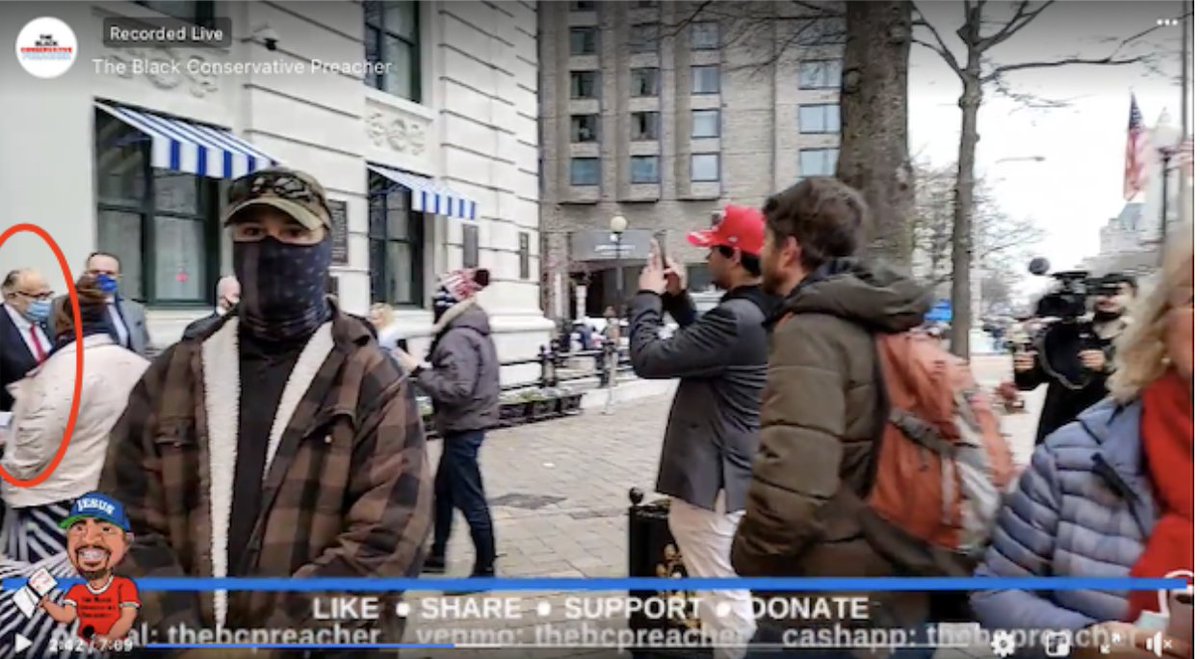
5/ Now to the #Capitol: We see a several of Roger Stone's #OathKeeper guards amidst a larger group yelling at police. Video surfaced by the @CTExposers team.👇👇
https://t.co/NWsONDz0OA

Here's the footage of Roberto Minuta throwing a tantrum at the police, 1/6 at the east side of the Capitol (5:16 in the Youtube video link).
— Capitol Terrorists Exposers (@CTExposers) February 10, 2021
\u27a1\ufe0fhttps://t.co/rulMuaftCm pic.twitter.com/wz6A4zQLYT








